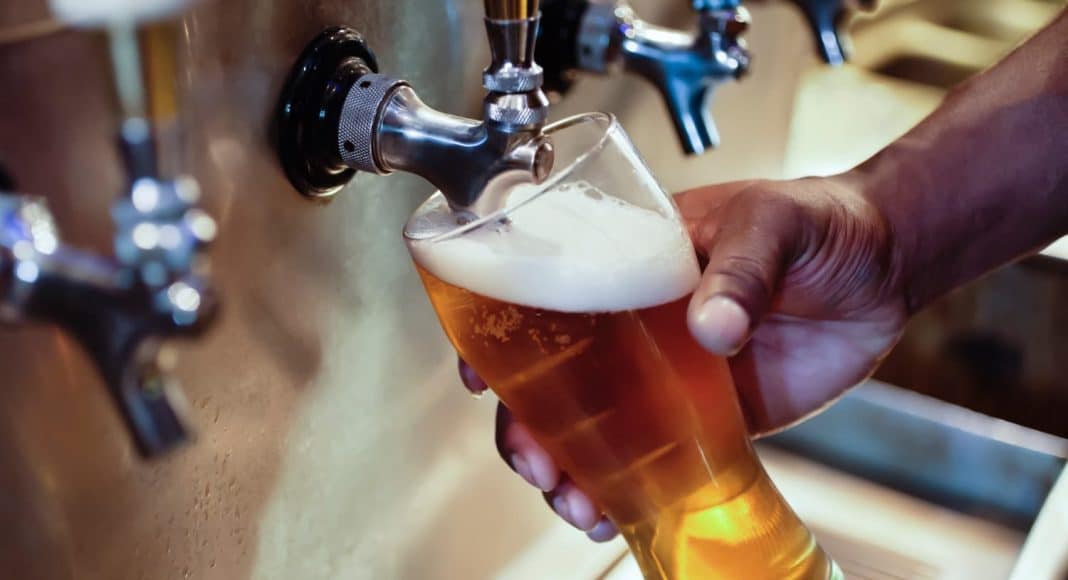In many ways, the Pacific Northwest is leading the craft beer movement. Washington’s Yakima Valley is the largest producer of hops in the world and the number of craft breweries in the Seattle and Portland areas are growing faster than you can say, “Imperial IPA.”
But the PNW is not leading the way in one important area: diversity. And the region is not alone. In the U.S. — and, indeed, the world at large — there are very few people of color represented in brewing, which is a major problem for (at least) two reasons: it limits the types of backgrounds entering the business and the number of people consuming the product.
RELATED: Beer Sales Flatten Thanks To Marijuana
Seattle’s Larry Rock, an African-American man and former head brewer at Pike Brewing and former brewer with Hale’s and Maritime, says, “A lot of it comes down to who people’s friends are and who they know.”
I’m not saying it’s a racist industry, but it’s an industry of familiarity. It’s really disappointing to me. When you look at the overall beverage industry, there are very few minorities, even on the distributor side. You don’t see the outreach.
Rock, whose son also works in the beer industry for Reuben’s Brews, says when he first started some 30 years ago, some customers would balk if he would jump behind the bar to serve.
“They thought I was up to no good,” he remembers. “But once people got to know you, they see you’re passionate and you know what you’re doing.”
https://www.instagram.com/p/81aDjdTgJz/
In Seattle alone, there are very few brewers or brewery owners of color. Manny Chao, a Chinese-American at the beloved Georgetown Brewery, and Korean-born Dan Lee from Odin Brewing come to mind. Another is master brewer Annie Johnson, an African-American woman who heads up the brewing lab and product development at Seattle startup PicoBrew. Johnson, who was a home brewer for many years and won the AHA Home Brewer of the Year in 2013 (the first woman to do so since 1983 and the first African-American ever), says much of the disparity happens because of exposure.
“You’re starting to see more and more women [in craft brewing] now,” says Johnson. “I don’t know if it will ever even out, but as long as the opportunities are open to everything, then it doesn’t matter.”
https://www.instagram.com/p/BB8ngrtn_8W/
Johnson believes more and more people — including women and people of color — will come into the craft beer scene if folks are exposed to it.
“And that’s the beauty of small craft breweries opening up,” she says. “There’s something in people’s neighborhoods now.”
Johnson, who grew up in California, says there are something like 46 craft breweries in the Sacramento area where she used to live, whereas three years ago there were maybe 10 (most Americans live within a dozen miles of a brewery). And it’s this increased local presence, this face-to-face introduction, that’s helping all people be exposed to the craft beer world – that, and an increased focus on brewing education in schools of higher learning, says Johnson.
“Getting into the industry you need education,” she says. “And community colleges are adding more and more brewing programs, which is awesome!”
In the end, beer does not care what color you are. As long as we continue to focus on beer, the quality, then everybody wins.
That’s the hope, anyway. A recent and very popular Thrillist article chronicles the dearth of African-Americans in brewing, pointing out the lack of employment opportunities for people of color in the industry.
“Historically, there’s been a lot of discrimination of African-Americans in terms of employment, and the brewing industry is not an exception,” the article quotes Celeste Beatty, a black woman and the founder of Harlem Brewing in New York.
https://www.instagram.com/p/BJlGJTlDzIK/
In addition, the article says beer has a long history in western Europe, a traditionally white area of the country, and ingredients from black parts of the globe aren’t often used in brewing. “Your craft beer aisle may feature a dozen IPAs, but good luck finding an African-Style Sorghum Ale,” the article notes.
Of the some 4,500 microbreweries in the country, there are a few other black-owned breweries across the United States, like Harlem in New York, Cajun Fire in New Orleans, 18th Street Brewery in Gary, Indiana and Black Frog in Toledo, Ohio. And while Odin Brewing’s Lee says he doesn’t want to see any “agency or some government official or some well-meaning person to artificially boost racial diversity,” Rock has a different approach.
“We need to make the [beer] festivals more diverse,” he says. “If I see any more folk bands or country music there, I’m going to scream! We have to get Latin music, salsa bands, funk bands to draw in an audience. But, again, people are dealing with who and what they’re familiar with.”
Related Stories
[soliloquy id=”20407″]


